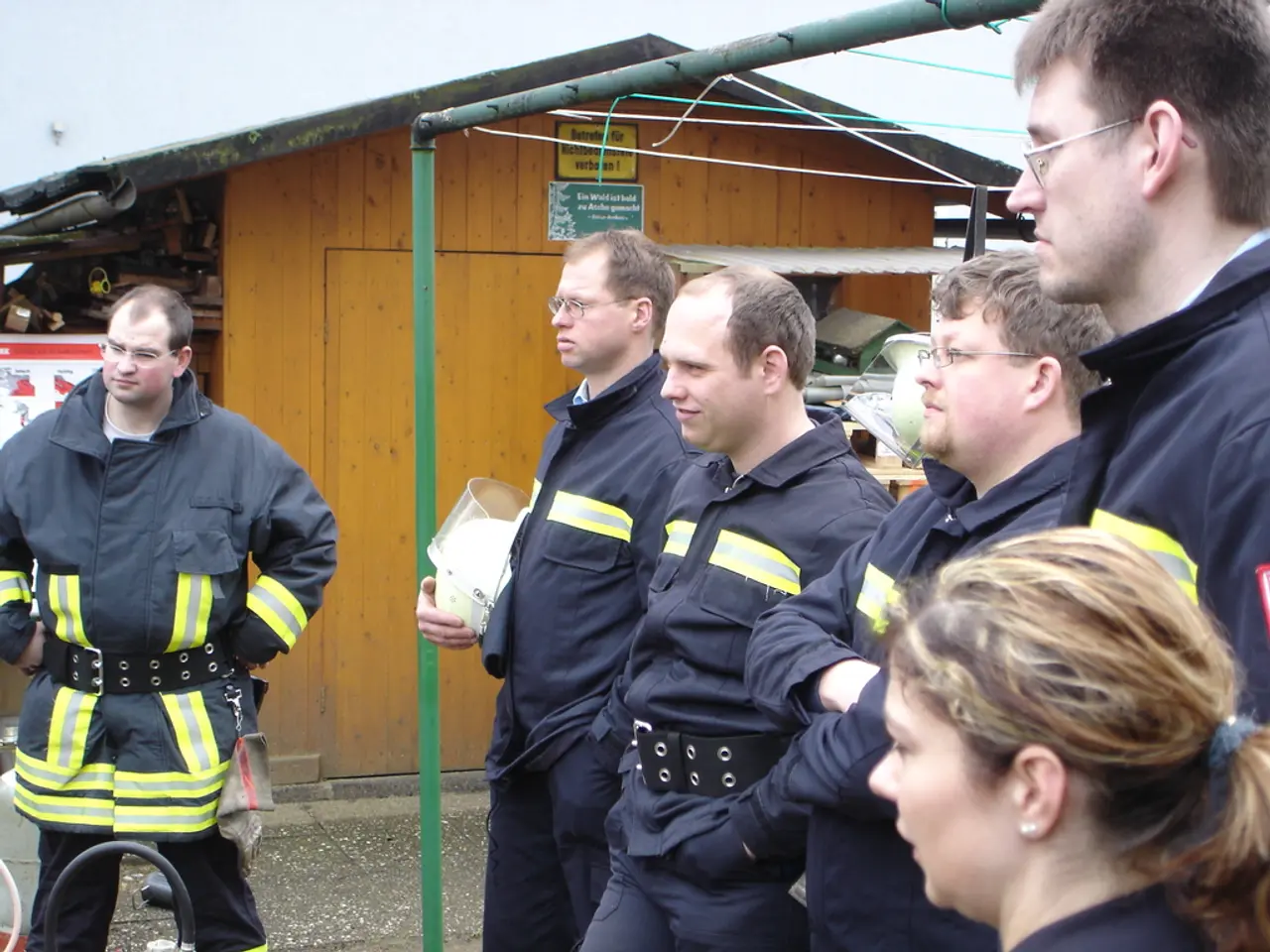Workplace and Community Safety Guidelines Provided by Southall Health & Safety
In the vibrant and bustling town of Southall, businesses face a multitude of health and safety challenges. From restaurants and offices to construction sites and warehouses, it's crucial for local businesses to adhere to the relevant regulations and guidelines to ensure a safe working environment for their employees and patrons.
For Restaurants and Food Businesses
Slips, burns, and food allergen mishandling pose significant risks in these establishments. To mitigate these dangers, businesses can invest in non-slip flooring, mandatory anti-slip shoes, and allergen training for staff. First aid kits should be kept stocked, and accidents should be reported. Conducting daily safety briefings can reduce accidents by 60%.
In Offices and Retail Spaces
Poor ergonomics leading to back pain and Repetitive Strain Injury (RSI), and fire hazards due to overloaded sockets in older Southall buildings, are common health and safety risks. Encouraging breaks and offering support can help manage stress in the workplace, while providing Personal Protective Equipment (PPE) such as gloves, masks, and helmets where needed.
Fire Safety Regulations
Following the recent workshop fire in Southall, businesses must comply with the Regulatory Reform (Fire Safety) Order 2005. This requires risk assessments and fire precautions, including safe handling and disposal of smoking materials to prevent fires. Fire exits must be clearly marked, especially in crowded venues like Southall Market.
Sector-specific Regulations
Workplaces such as motor vehicle workshops must also observe HSE and local council regulations on machinery safety, hazardous substances, and waste disposal in addition to the overarching Act. For instance, construction and warehousing may require solutions such as harnesses and guardrails for elevated work and regular machinery maintenance checks.
Compliance and Enforcement
Health and Safety Executive (HSE) and local authorities in areas like Southall enforce regulations and can issue improvement or prohibition notices when standards are not met. Compliance can be demonstrated via certifications like SafeContractor.
Industry-specific Regulations
Industry-specific regulations such as COSHH, RIDDOR, and Manual Handling Operations Regulations may also apply. First aiders are legally required on-site in high-risk industries.
Local Resources
The Ealing Council's Health & Safety Team offers free advice, while Southall College provides safety courses for local businesses. The UK's Health and Safety at Work Act (1974) applies to all Southall businesses, and neglecting health and safety can lead to fines, injuries, and reputational damage.
Southall, with its diverse industries including manufacturing and hospitality, requires businesses to be vigilant about health and safety. By implementing these actionable, expert-backed tips, businesses can create a safe and healthy work environment for all.
- To maintain health and safety in the vibrant town of Southall, businesses in the manufacturing sector should consider implementing appropriate measures such as providing protective gear and conducting regular machinery maintenance checks as mandated by regulations like COSHH and the Manual Handling Operations Regulations.
- Financial institutions in Southall can promote workplace-wellness by encouraging breaks, managing stress, and providing necessary training for their employees, as per the guidance offered by the Ealing Council's Health & Safety Team and industry-specific regulations such as the UK's Health and Safety at Work Act (1974).
- In light of the recent workshop fire in Southall, businesses in the finance industry should ensure compliance with the Regulatory Reform (Fire Safety) Order 2005, which includes conducting risk assessments and implementing fire precautions, to prevent potential fires and financial losses that may result from such incidents.




